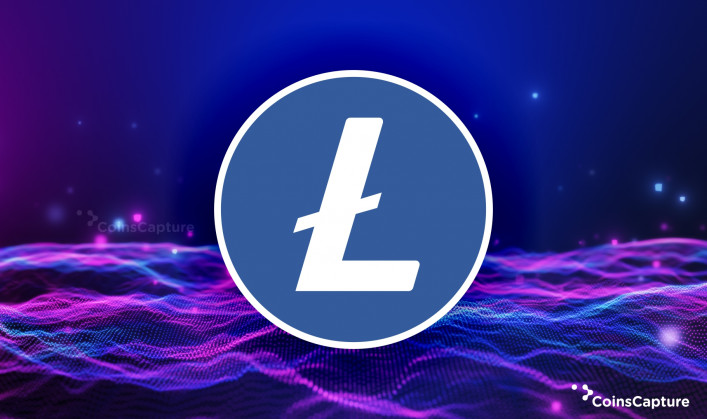7 November 2025
What Is Litecoin?
In 2011, the Bitcoin blockchain split in two, creating two separate digital currencies. It was created in response to the designer's fears about Bitcoin centralization and to prevent large-scale mining businesses from gaining mining dominance. Despite the fact that Litecoin was unable to prohibit commercial miners from controlling a majority of the mining in the long run, the Cryptocurrency has evolved into a coin that can be mined and a decentralized payment network.
Also Read: What Is XRP?
Litecoin is a Cryptocurrency created to facilitate instant, private, as well as cheap transactions thanks to the aforementioned qualities of blockchain technology. This Cryptocurrency was developed using the Bitcoin system, but there are a number of key differences. These include a different hash code, a higher difficult limit, faster block transaction speeds, and so forth. Litecoin's block duration is under 2.5 minutes and its transaction charges are almost nothing, making it an ideal Cryptocurrency for micropayments and point-of-sale systems. On October 7, 2011, Litecoin became available to the public through a fully accessible program hosted on GitHub. Ever since its popularity and vendor adoption has skyrocketed and has consistently ranked among the top 10 Cryptocurrencies by market valuation. Charlie Lee, a former Google worker and Cryptocurrency developer founded Litecoin with the intention of creating a "lite" alternative to Bitcoin that shared several of Bitcoin's characteristics while being more lightweight.
Also Read: Whzt Is A Dogecoin?
What Is Litecoin Hashing Algorithm?
Scrypt (uttered es-crypt) is the hashing method Litecoin employs. Additional storage is required for Scrypt, and it is slower than SHA-256. However, since the Tenebrix initiative of 2011 updated Scrypt to function with normal CPUs for mining, it gained more traction in the Cryptocurrency world. Scrypt's far higher storage needs also made it hard to design ASIC miners for the protocol. This resistance to ASIC miners didn't last long, though, since 2016 saw the introduction of the very earliest Litecoin ASIC miner.
What Makes Litecoin Unique?
Litecoin is indeed the 2nd largest traded Cryptocurrency after Bitcoin. The latter's popularity may be owed, in great proportion, to its ease of use and obvious practical advantages. Since January 2021, Litecoin (LTC) is recognized by over 2,000 retailers and shops worldwide, making this one of the most commonly accepted Cryptocurrencies. Quickness and low price are its primary selling points. In most cases, Litecoin transactions are processed within minutes, and the associated costs are minimal. Thus, it is a viable option for Bitcoin in places where low transaction costs are a decisive issue. MimbleWimble (MW) theory, meant for testing Mimblewimble-based secret transactions on Litecoin, was released at the end of 2020. When implemented on the mainnet, this function would provide Litecoin customers with even more anonymity and scalability than they now enjoy.
Litecoin Developments
Huge mining streams operated by Information Technology companies now contribute to the vast bulk of Litecoin mining, marking a shift away from an individual mining model that was previously dominant. In comparison to other currencies, its market valuation is rather little. Despite this, it is a highly exchanged Cryptocurrency, consistently ranking in the top 30 out of over 18,000 coins monitored by CoinMarketCap. It shows that it is already widely used despite the fact that it hasn't attracted the same level of investment enthusiasm as Bitcoin or other younger Cryptocurrencies.
How is the Litecoin Network Secured?
For its part, Litecoin's blockchain-based security features make it very difficult to steal. Litecoin, the same as Bitcoin and several numbers of other Cryptocurrencies, employs the PoW consensus method to guarantee the rapid and accurate confirmation of transactions. LTC's mining network works collectively to prevent double-spends and a variety of other threats while maintaining 100 percent system reliability.
Where To Buy Litecoin?
To acquire a virtual currency, one might visit a Crypto platform. Some marketplaces are based in the United States, while others are based elsewhere. The SEC keeps tabs on and regulates U.S. exchanges to protect customers' and merchants' money. This means that Americans may only participate in currency transactions inside the United States. Several nations have imposed rules or handed supervisory powers to their monetary governing bodies, however, it is unclear whether or not this applies to platforms outside of the United States.
When you acquire Litecoin, you may convert it to other currencies such as the U.S. dollar (USD), the Korean won (KRW), the euro (EUR), as well as more. Huobi Global, Binance, Coinbase Pro, OKEx, as well as Kraken are among the most well-known exchanges. Litecoin is a rare Cryptocurrency that can be traded for a broad range of fiat money, including the USD, the KRW, the EUR, as well as many more.
How To Sell Litecoin?
Litecoin may be bought and sold on the equivalent marketplaces in which it is traded. Moreover, there are important distinctions between trading Cryptocurrency on a controlled and decentralized exchange. To sell Litecoin on an exchange such as Kraken, for instance, you must pay LTC to your Kraken trading account. The Litecoin exchange then acts as a middleman to help you sell your Cryptocurrency. Link your wallet to the platform and complete your KYC registration procedure unless you're using a decentralized exchange, say Kucoin or Crypto.com. Once accepted, you may input your Litecoin as well as start to sell it.
The Bottomline
In this sense, Litecoin's continued popularity is proof that alternative Cryptocurrencies may survive, thrive, and develop over age. Litecoin's cheap transaction fees and quick confirmation times, along with the support of a rapidly expanding user base, have resulted in the Cryptocurrency's acceptance by 1000s of retailers throughout the globe.
Disclaimer: The author’s thoughts and comments are solely for educational reasons and informative purposes only. They do not represent financial, investment, or other advice.






